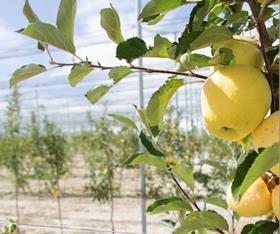
India’s ban on Chinese apples has led to major Indian market share gains for Turkish shippers there this season, according to exporters.
The suspension, in place since last May, has generated increased Indian demand for Turkish apples, which has allowed shippers to extend their export season and send a wider range of varieties.
“The suspension of Chinese apples has had a very positive impact on our trade with India,” Aysel Oguz, export manager for Turkish fruit exporter Anadoluetap, told Fruitnet. “If last year we packed only red varieties and Granny Smith, this year we had a very good market for Fuji and pink-coloured varieties too. We also got the chance to prolong the season.”
Demir Fresh Fruits’ (DFF) general manager, Alper Kerim, said he has seen demand for Turkish apples soar in India over the last two seasons thanks to their competitive price and relatively short transit time.
Last year his firm shipped 1,750 tonnes to the market, and he expects to match that volume once again this season, he told Fruitnet.
“There is huge demand for our apples from India because of the better price if you compare them with Italy, France or Poland; and also the location of our country is so convenient: from Mersin Port it takes only 14 days to Mumbai, which is a big advantage for sending products in a sound condition,” he said.
Both agree that India could become the jewel in Turkey’s export crown if the Middle Eastern nation can overcome erratic apple quality with standardised post-harvest practices at source.
“Turkish apple orchards can compete with the best in the world, but our main failing is how we harvest, store, pack and transport the fruit,” Kerim said. “We have to overcome this [nationally], otherwise we can’t be a big player on the world apple stage.”
Oguz agreed: “Some customers [in India] are reluctant to import Turkish apples due to previous negative experiences [with quality],” she said. “This is something that needs to be improved together with packers and customers by creating necessary [post-harvest] standards.Once achieved, I can definitely say there is big potential for not just Turkish apples in India, but also other Turkish fruits, such as stonefruits and citrus.”






No comments yet